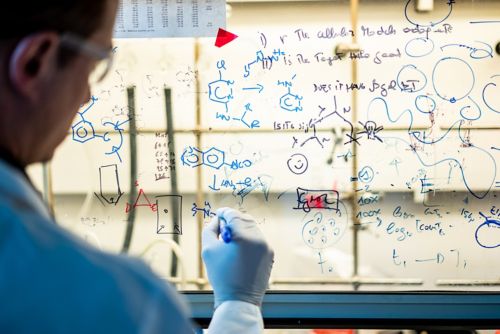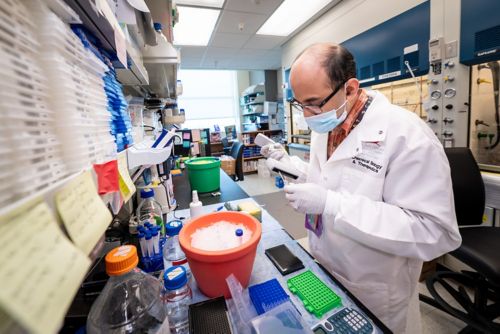St. Jude Family of Websites
Explore our cutting edge research, world-class patient care, career opportunities and more.
St. Jude Children's Research Hospital Home

- Fundraising
St. Jude Family of Websites
Explore our cutting edge research, world-class patient care, career opportunities and more.
St. Jude Children's Research Hospital Home

- Fundraising
Tommaso Cupido Lab
Using chemistry-based approaches to investigate cellular mechanisms of gene-expression regulation by molecular motors
About the Cupido Lab
Cellular activities like DNA replication and cell division require energy from protein motors. Changes in the activity of these motors can lead to disease. Our laboratory wants to understand how protein-based machines control the flow of genetic information from DNA to proteins. We use small molecules to manipulate these machines in order to better understand their fundamental biology and inform the development of new targeted therapies.

Our research summary
Fundamental biochemical processes that occur in living cells – such as DNA replication, gene expression, mRNA processing, and cell division – require energy input from protein nanomachines, or motors. When it comes to diseases like cancer, alterations in the activity of these motors lead to disruptions in gene and protein levels, which in turn can lead to uncontrolled cell growth and resistance to chemotherapeutics.
Our laboratory investigates those protein machines that regulate the entire process underlying the accessibility of DNA information in cells, from transcription to protein translation to the stability of the mRNA and the protein itself. In order to understand the function and regulation of these enzymes at a molecular and cellular level, we combine chemistry and structural approaches with cell biology and genomics.
Studying the regulation of these protein machines in living cells presents unique challenges because altering the proteins in the cells can be catastrophic. Our laboratory overcomes this hurdle by using chemical probes – small molecules we design – that, when added to the cells, allow us to observe changes in the cell and learn new insights into the function of proteins. In addition, these probes allow us to directly test pharmacological approaches against specific targets to determine their effectiveness.

Selected publications
Contact us
Tommaso Cupido, PhD
Assistant Member, St. Jude Faculty
Department of Chemical Biology and Therapeutics
MS1000
St. Jude Children’s Research Hospital
Follow us

Memphis, TN, 38105-3678 USA GET DIRECTIONS